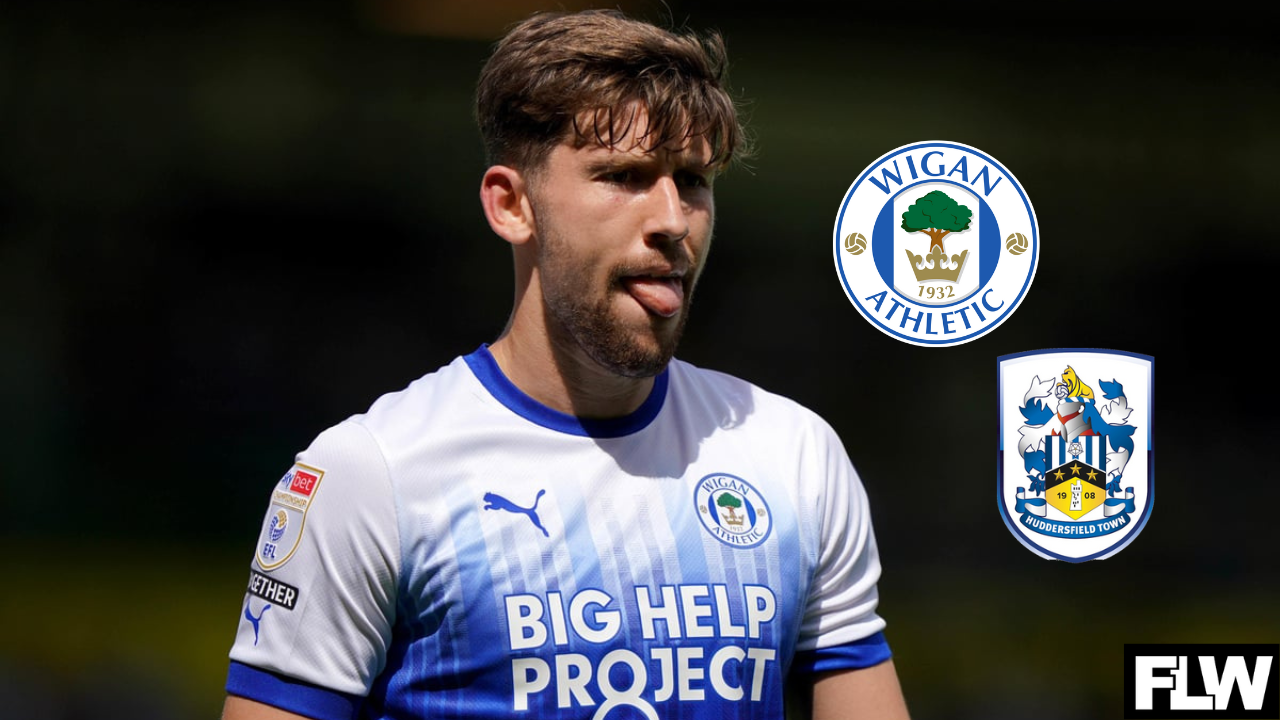How does Neil Warnock do it?

The word great is bestowed with too much regularity in football, but it’s arguably also misdirected.
It’s perhaps an assumption that to be great, you must reach the very top of the sport — win a league, lift the European Cup, create a legacy. Sir Alex Ferguson, Arsene Wenger and Pep Guardiola would all rightly be considered great managers. But how about Neil Warnock?
On March 4, newly-appointed Warnock’s Huddersfield Town were bottom of the Championship and seven points adrift of safety having just been spanked 4-0 at home by Coventry City. “I’ve never been in a situation as bad as this, if I’m honest,” Warnock said, not exactly easing relegation fears of the club’s fans, given he’s been a manager for 43 years.
On May 4, Huddersfield beat one of Warnock’s many former employers Sheffield United 1-0 to secure safety with a match to spare. Another job done, another remarkable achievement to add to one of English football’s most impressive CVs.
Warnock has never won a major trophy, nor even kept a team in the Premier League, but what he has done, time and time again over many decades in the game, is get more from less and achieve greatness at clubs who weren’t expecting it.
“As soon as he took over Huddersfield, I said, ‘That’s them safe’,” says Sol Bamba, who played for Warnock at Middlesbrough and Cardiff City, and this season was assistant manager to Sabri Lamouchi at the latter. “A few of the other people at Cardiff who have worked with him said the same.
“We played them not long after and I said to a few of their players, ‘You looked completely gone’. They said that they were – but then Neil came in and everything changed. It’s what he does.”
It is what Warnock does, even at the age of 74 and having “retired” on what feels like at least three occasions.
His achievements are plentiful and numerous. He’s done things hundreds of EFL managers have failed to ever accomplish in their entire careers, let alone do it consistently over a period of many, many years…
- Promotion with Scarborough into the Football League (1987)
- Successive promotions with Notts County from the third tier to the top flight (1990 and 1991)
- Saved Torquay United from relegation to non-League after joining in the March (1993)
- Promotion with Huddersfield into the second tier (1995)
- Promotion with Plymouth Argyle into the third tier (1996)
- Automatic promotion with Sheffield United into the Premier League (2006)
- Guided Crystal Palace to the Championship play-offs having taken over when they were 19th after 10 games (2008)
- Premier League promotion with QPR as EFL champions (2011)
- Kept Rotherham in the Championship after being six points adrift of safety in late February (2016)
- Automatic promotion with Cardiff City into the Premier League (2018)
- Kept Middlesbrough in the Championship having taken over with a month to go, winning half of his eight games (2020)
- Kept Huddersfield in the Championship after being seven points adrift in March (2023)
What makes Warnock almost unique in the English game is that not only has he achieved some level of notable success with no fewer than a dozen clubs over five separate decades, but his feats arguably become more far-fetched the older he gets.
That survival with Rotherham in 2016 looked incredibly unlikely. He was in charge for 16 games and with 13 remaining they were six points below the safety line, having earned five points from the previous 30 available, before Warnock inspired them to win six of their next eight amid an unbeaten run of 11. They lost their last two games of the season but were already safe and finished nine points clear of relegation. Nine, madam.
Cardiff were also in the Championship drop zone when Warnock took over in October 2016. He guided them to a top-half finish that season and then in 2017-18, with a cut-price squad and a tight budget, oversaw promotion to the Premier League with 90 points.
And now, back at Huddersfield, he’s done it again — a long shot at survival completed with time to spare.

How does he do it? What’s the secret? Tactically, there’s nothing particularly revolutionary and while he keeps up with the times in terms of nutrition, scouting, analysis et cetera, you wouldn’t exactly call Warnock a technological pioneer.
But maybe that’s the point – he’s carried the same basic principles throughout his career and remained consistent, energetic and positive with his players, be it with Scarborough in the 1980s or Huddersfield today.
When speaking to players who have thrived under him, two things come across repeatedly – personality and leadership.
“To me, it’s about man-management,” Bamba says. “The first thing he does is to make people feel a million dollars.
“He’ll go to a striker who hasn’t scored in 10 games and say, ‘You’re my centre-forward, you’ll play in every game to the end of the season and I don’t care if you don’t score once because I believe in you, end of story’. He does that right across the dressing room and it lifts everyone up.
“You start to see the situation in a completely different way. Other managers would be ignoring you or having a pop. He shifts the pressure.”
Making players feel good is a cornerstone of Warnock’s strategy when he goes into a club, as is identifying who is “with him”. First impressions last.
As he revealed in a recent interview with BBC Radio 5 Live, Warnock will get the players padded up for his first training session “to see who I want in the trenches”, and he asked assistant Ronnie Jepson during his first speech to the players to keep an eye on who was listening intently and who was looking at the floor.
Warnock added: “And make sure the lads know if they miss a header or a tackle, they know they’re not going to be in the team.
“I love passion, I love players that give me everything. If I couldn’t turn average players into good players, poor players into average players, I don’t think I could manage. I love players believing in me and I love making players play together as a team.”
Huddersfield were in a state when Warnock became their manager for a second time a few months ago, three decades after his first stint. Not only were they rooted in the relegation places, but in their final 15 games they had to face 10 of the top 12 teams in the Championship.
Warnock was in every day at training, never missing a session, which hasn’t always been the case in his career. At Sheffield United, he’d often leave training for others to oversee and then take the reins towards the end of a week before a match. It’s believed that’s happened at other clubs he’s managed, too.
But that’s just one example of Warnock evolving, changing, being open to new ideas depending on the situation.
For the game which sealed Huddersfield’s survival he, for the first time in his long and distinguished career, took the advice of a local journalist when making his team selection.
Warnock had read Steven Chicken’s Yorkshire Live column previewing the match and decided the writer’s predicted line-up was a better choice than the one he had in mind. So he picked a more defensive team with Rarmani Edmonds-Green at right wing-back and Josh Koroma up front instead of Joseph Hungbo, citing how, at Sheffield United in 2007, he’d gone for an attacking approach for a must-not-lose penultimate match away to Aston Villa when fighting Premier League relegation. United got beaten 3-0 at Villa Park and were relegated on the final day on goal difference, by a margin of one.
“Can I thank you, Steven, for picking the team tonight,” he said in his post-match media session after Huddersfield had confirmed their Championship status for 2023-24. “If I hadn’t read your paper, I wouldn’t have done that.”
Still learning, still not stubborn to change his ways, turning 75 this year.
“Going out there knowing the manager has your back is great,” Danny Ward, a Warnock player at Rotherham, Cardiff and now Huddersfield, tells The Athletic. “He knows what each player needs. It might be an arm around the shoulder or a rocket up the backside. But he knows exactly what is needed.
“Personally, he’s come in and instilled so much confidence in me. He believed in me, as he always has in the past. That is a big thing for a player.
“When he is in and around the place and on the training ground, you can see he loves it. Every day, he’s been in and working hard, really pushing us. He loves that banter and camaraderie, loves being around the lads. It must be what keeps him coming back.”
How does he instil that confidence? Relaxing players with his positive yet forthright demeanour (which masks his own personal pressures and nervousness – he revealed he took a sleeping tablet the night before that match against Sheffield United two weeks ago, such was his anxiety) and using humour as a tool to unite a group.
One thing he’s done for years is pick a favourite player, a teacher’s pet, in each squad.
If it’s raining during training he’ll head over to his favourite, be it Phil Jagielka or Michael Brown at Sheffield United, Darren Ambrose at Crystal Palace or whoever, and put an umbrella over their head, have a chat with him, offer him some chewing gum, while the other players are stood around getting soaking wet.
At Huddersfield, he’s been taking the mickey out of players for their hair (Jack Rudoni), taste in music (Koroma) or dress sense (Tom Lees, specifically his tracksuit). Warnock slaughtered Koroma for his playlist choices in public (“he’s a likeable rogue… but his music taste is a disgrace”) but later admitted he actually likes it. It was just a front to inject some humour into the dressing room. Simple psychology, but in Warnock’s case, effective.
It’s not just that Warnock seems to get better with age, but that he can get a tune out of players who are now more than half a century younger than him.
“He knows how to speak to everyone,” Ward adds. “It has been great watching him. One minute he’s having banter with JK (Koroma) about how bad his music is and the next he’s getting us ready for a big match.”
Midfielder Rudoni is 53 years younger than his manager. He joined Huddersfield from AFC Wimbledon last summer having scored a creditable 12 league goals for a side that ended up relegated from League One, but had failed to find the net all season for his new team before Warnock’s arrival. Over the Easter weekend, he scored in successive games against Watford and Blackburn Rovers, helping earn four vital points.
“The first thing he said to me was to relax,” Rudoni says, “and if I did that, the goals will come — which a couple did. The gaffer gave me confidence by making me believe in myself. He wanted me to help bring a real tempo to our play. Everything was about being on the front foot, that’s how he wanted us to play. His tactics are great.
“He told me what I do well – and that I can do that regularly. Also, where I needed to be in terms of my position on the pitch to make the most impact. He kept things simple. I loved every minute playing under him.”
Positive reinforcement, basic but effective instructions. Not rocket science. but all done with a leadership style and a personality that the majority of people can relate to, no matter how old they are.
“He loves taking the mickey out of the lads,” Rudoni adds. “My hair has been a big thing for him recently – he doesn’t like it! Thing is, I’ve seen pictures of him when he was younger!
“That sort of thing helps us relax. It brings us together, because everyone is joining in. He’s deadly serious when he needs to be, but he uses that side (banter) really well, by relaxing us and keeping it light-hearted, everyone suddenly found themselves thinking, ‘Things aren’t as bad as we thought’.
“He brings a real calmness to the situation and makes you feel like you are the player you believe you can be.
“The morale has gone through the roof. Literally everyone bought into what the gaffer wanted and you’ve seen the results.”
Bamba, whose respect and admiration for Warnock is unstinting, says his former boss took inspiration from managerial legend Ferguson when it came to relating to players many decades younger than him.
“I think it helps that he’s got kids of his own who aren’t too old,” Bamba says.
“I know that feeling because when I was playing at 40, my boy was just about the same age as some of the lads around me in the dressing room! It makes it a bit easier to relate, you’re used to being kept on your toes.
“A manager has to be able to juggle the way they deal with different generations. Neil once said to me that it was something he felt he was good at, something Sir Alex Ferguson had spoken about. A young kid with money, the fashion, all of that. You have to know how to respond to them. It’s not like it was 20 years ago.”
Bamba tells a story which encapsulates Warnock’s intuition for how to treat people with a hands-on or hands-off approach. This isn’t just about personality, it’s about psychology.
“He had an office at Cardiff which looked out over the car park at the training ground,” Bamba says. “I drove in one morning, got out of the car, and he appeared from nowhere.
“He said to me, ‘Sol, go home. Take two or three days off. I’ll see you Friday’. So, I want to know why. We’ve got a game coming up, I want to train. But no, he tells me to go away.
“I take the missus away to France for a few days and then I come back in on Friday – he puts the team up and I’m in the starting line-up. It’s all really strange. I don’t get it.
“I try to get into his office to ask what’s going on but he won’t have it — ‘I’m not talking to you, we’ve got to focus on the game’, things like that. I play the next day, I have a great performance. Man of the match. Afterwards, he says to me, ‘Normally when you get here in the morning, you’re laughing, you’re smiling, you’re getting all the lads going, but when you got out of the car this time, you didn’t look the same’.
“Basically, he didn’t think I was myself. He thought there might be something up, so his attitude was for me to get away from there, refresh and then I’ll run through a brick wall for him. Which I did.
“He’s so clever like that. He sees everything, because he makes it his job to get to know every player. Just a quick look at me in the morning made him think he had to do something, even though I didn’t realise it.
“I’m biased but I love the man.”
He’s not the only one.
And when next February comes around and Warnock inevitably takes a phone call from another club in crisis, a few more players will soon undoubtedly feel the same way about one of English football’s great personalities… and yes, one of its greatest managers.
Additional reporting: Richard Sutcliffe and Phil Hay
(Top photo: George Wood/Getty Images)













